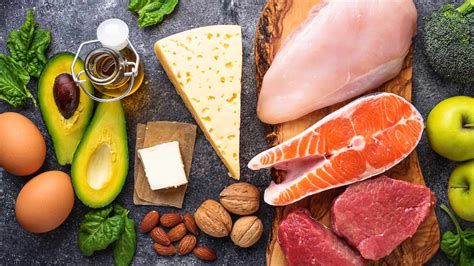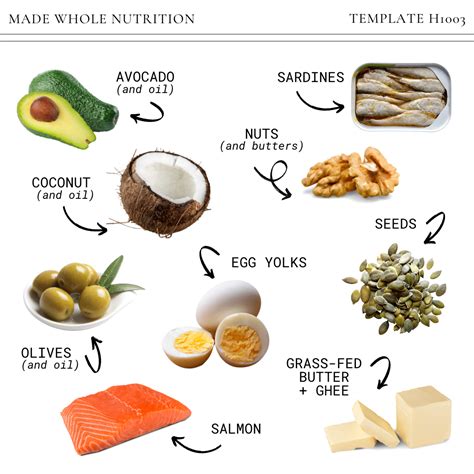The Vital Role of Healthy Fats for Men
For the average man, navigating dietary advice can often feel complex, especially when it comes to fats. Historically demonized, healthy fats are now recognized as indispensable components of a balanced diet, crucial not just for energy, but for a host of physiological functions. This article delves into the ideal percentage of caloric intake from healthy fats for men engaging in typical daily activity, focusing on their impact on hormone production, satiety, and weight management.

Understanding ‘Average Daily Activity’ and General Fat Guidelines
When we talk about the ‘average man’s typical daily activity,’ we generally refer to someone who might have a desk job but engages in light to moderate exercise (e.g., 30-60 minutes of walking, jogging, or gym work several times a week). This level of activity requires a balanced macro-nutrient intake to support overall health and energy levels.
General dietary guidelines from health organizations often recommend that adults derive 20-35% of their total daily caloric intake from fats. This range provides sufficient fat for essential bodily functions while leaving room for carbohydrates and protein. For men, this range is particularly important, but the *type* of fat matters profoundly.
Healthy Fats: Fuel for Hormones and Fullness
Optimizing Hormone Production
One of the most critical roles of dietary fat for men is its direct involvement in hormone production, particularly testosterone. Cholesterol, a precursor to steroid hormones, is synthesized in the body, but adequate intake of healthy fats supports this process. Low-fat diets, especially those severely restricting fat, have been linked in some studies to reduced testosterone levels. Essential fatty acids (EFAs), which the body cannot produce on its own, are also vital for cell membrane integrity and signaling pathways that influence hormone synthesis.
- Monounsaturated Fats (MUFAs): Found in olive oil, avocados, nuts (almonds, cashews, pecans), and seeds.
- Polyunsaturated Fats (PUFAs): Including Omega-3 (fatty fish, flaxseed, chia seeds, walnuts) and Omega-6 (soybean oil, corn oil, sunflower oil, but consumed in balance with Omega-3).

Enhancing Satiety and Preventing Overeating
Fats are the most calorie-dense macronutrient, providing 9 calories per gram compared to 4 calories per gram for carbohydrates and protein. While this density can be a concern for weight gain if consumed excessively, it also makes fats incredibly effective at promoting satiety. Fat slows down digestion, keeping you feeling fuller for longer. This prolonged feeling of fullness can significantly reduce the likelihood of snacking between meals or overeating, thereby aiding in weight management without promoting unhealthy gain.

The Ideal Percentage and Source of Fats
Given the average man’s activity level and the importance of both hormone production and satiety, aiming for the middle to upper end of the recommended range, specifically 25-35% of total daily caloric intake from healthy fats, appears to be optimal. This range allows for sufficient fat intake to support hormonal health without exceeding energy needs, especially when paired with sensible portions and activity.
It’s crucial that the majority of these fats come from healthy sources:
- Avocados: Rich in MUFAs and fiber.
- Nuts and Seeds: Almonds, walnuts, chia seeds, flaxseeds, providing MUFAs, PUFAs (including Omega-3), fiber, and protein.
- Olive Oil: A staple MUFA-rich oil for cooking and dressings.
- Fatty Fish: Salmon, mackerel, sardines, tuna, excellent sources of Omega-3 fatty acids.
- Eggs: Provide healthy fats and cholesterol, important for hormone synthesis.
Minimizing trans fats (found in many processed foods) and reducing excessive intake of unhealthy saturated fats (from red meat, butter, full-fat dairy, some processed foods) is equally important. While some saturated fat is part of a balanced diet, it should not dominate fat intake.

Practical Application for Weight Management
To prevent unhealthy weight gain, the total caloric intake must align with energy expenditure. If 30% of an average man’s 2,500-calorie daily diet comes from fat, that’s 750 calories, or approximately 83 grams of fat. This quantity, when primarily derived from whole, unprocessed sources, can be highly beneficial for health, promoting satiety and metabolic well-being.
Focusing on the quality of fats and portion control within the 25-35% range ensures that the benefits of fat—from hormone support to sustained energy and fullness—are reaped without contributing to excess caloric intake and subsequent weight gain.

Conclusion
For the average man with typical daily activity, an ideal intake of healthy fats lies within the range of 25-35% of total daily caloric intake. This percentage is a sweet spot, providing ample support for crucial hormone production, enhancing satiety to manage appetite, and contributing to overall health without promoting unhealthy weight gain when integrated into a balanced diet. Prioritizing sources rich in monounsaturated and polyunsaturated fats is key to harnessing these benefits and fueling the body optimally.




